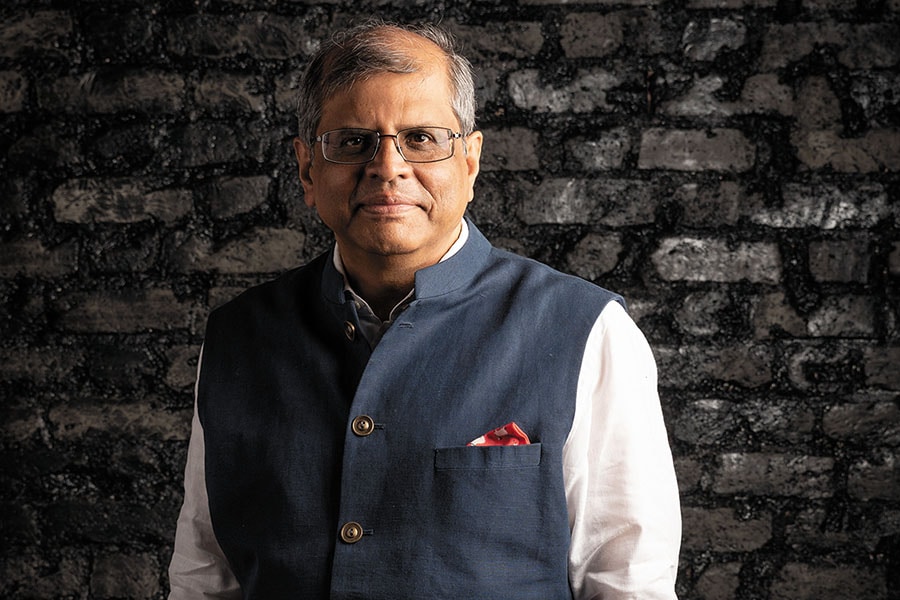
Amit Chandra: Easing the bane of hunger
Amit Chandra of Bain Capital impacted around 2.2 lakh people with 73 lakh meals through his ATE Chandra Foundation
 Amit Chandra, managing director, Bain Capital Private Equity, India
Amit Chandra, managing director, Bain Capital Private Equity, IndiaImage: Mexy Xavier
In early April, when the central government had imposed its first national lockdown to combat Covid-19, Amit Chandra, managing director, Bain Capital Private Equity, India, realised that if marginalised people did not get food on time, the situation could snowball into a humanitarian crisis. The local public distribution systems in Mumbai were not equipped to deliver food and essential supplies to the residents of the city’s densely populated slums, which were turning into coronavirus hotspots. And so, he wanted to feed 70,000 people in three days.
But food relief distribution was uncharted territory for his team at ATE Chandra Foundation, which usually works on capacity building of non-profits and rural development programmes. They contacted other local non-profit organisations, such as the Praja Foundation, which was experienced in building supply chains to deliver food to the poor. His volunteers and partners managed to reach the 70,000 mark in a week.
Soon, other funders joined in the efforts, including donors such as Swati and Ajay Piramal, Hemendra Kothari, Noshir Soonawala, Lalita Gupte, Azmin and Noshir Kaka. A total of ₹11.47 crore was leveraged with the help of co-donors, and the combined effort reached over 10 lakh people in Mumbai, and provided close to two crore meals within a span of two months. The ATE Chandra Foundation itself impacted around 2.2 lakh people with 73 lakh meals. Each kit consisted of rice, flour, vegetables, fruits, oil, sugar, salt, pulses and spices that would suffice a family for at least two weeks, along with hygiene products like soaps, sanitisers and masks.
Chandra, a banker-turned-private equity investor, led other Covid-related health programmes as well, working with multiple stakeholders. These included building a 219-bed ICU facility operated by the Brihanmumbai Municipal Corporation in Goregaon; donating close to one lakh personal protective equipment (PPE) kits, 29,350 N95 masks, eight ventilators and five oxygenator machines across Maharashtra and Rajasthan; partnering with Harsh Mariwala’s Marico Innovation Foundation to support five scalable Covid response solutions; helping in execution and data analysis of the sero-survey conducted among 15,000-odd people in Mumbai, and organising hygiene awareness campaigns in the city’s slums. He directly contributed close to ₹5 crore for these health initiatives, and leveraged approximately ₹8 crore from his network.
(This story appears in the 30 November, -0001 issue of Forbes India. To visit our Archives, click here.)





